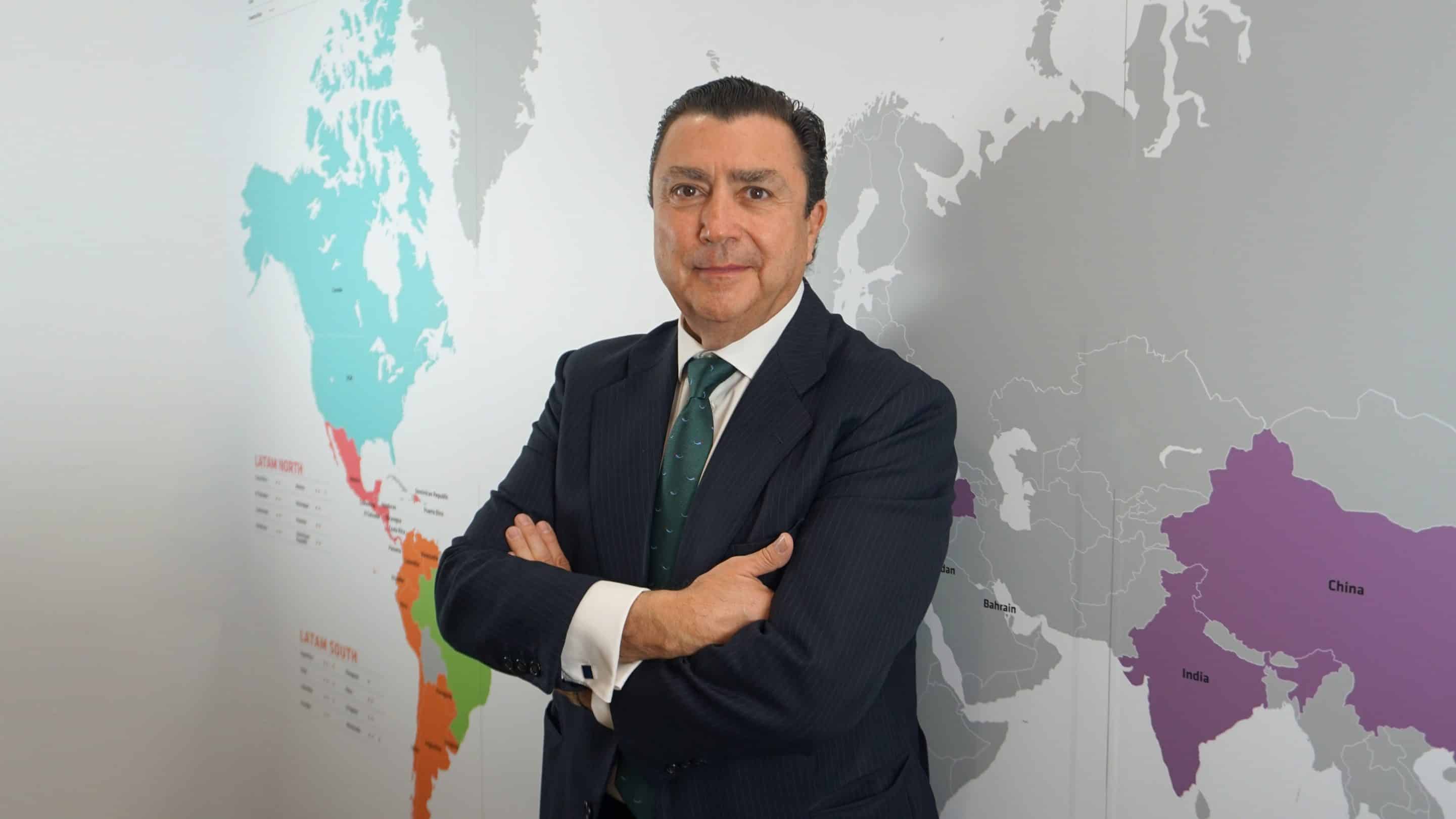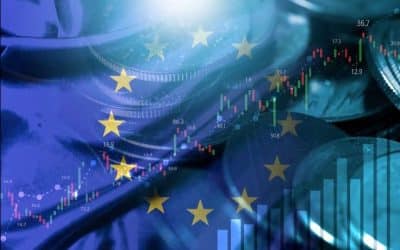MAPFRE AM: “We are surveying the sector to keep growing inorganically”

Redacción Mapfre
Interview published in El Economista on 2/27/2024
After Abante and the French “boutique” La Financière Responsable joined the MAPFRE Group, the management company wants to keep growing inorganically through purchases especially to bolster its distribution capacity. The development of the institutional investor segment and the capacity they will have to manage their own illiquid asset vehicles are two of the priorities the firm is considering for the coming years, in which it aspires to reach 11 billion euros in assets. MAPFRE AM exceeds 10 billion in assets managed.

- What is the objective for the coming years?
The objectives for 2024 are quite similar to last year's: 400 million in net underwriting, to which we must add market revaluation, which we believe will be positive, so we’ll easily exceed 500 million in turnover. In the medium term, in five years, we could reach 11 billion in organic growth, but at MAPFRE AM, we're observing the sector to find opportunities for inorganic growth, something we are very much on the lookout for. A significant amount of additional growth could come from there.
- Are you already in negotiations with another firm?
Not yet, but we are always surveying the market. What we’ll never do is reach simple agreements to grow and increase assets under management in a forced way. These kinds of agreements must have added value. Abante, for instance, complements us on the wealth management side and La Financière Responsable (LFR) complements us with its proprietary sustainability methodology. We’d also like to reach agreements with management companies with large distribution capacities. We have a substantial network, the second largest after CaixaBank, but we’re interested in having networks outside our own, as we are already doing with ING and Cajamar.
- Would that be more a matter of complementing distribution or finding a niche product?
Something with added value.
- With the capital risk management firm, what objectives are considered? How do you wish to set yourselves apart?
The latest thing we did was launch the MAPFRE Private Debt fund, and we have already authorized FCR's activity for MAPFRE AM. The move toward alternative management means diversification of investments from the portfolios of subsidiaries in the MAPFRE Group. In all alternative mutual funds, we are the main co-investor. In the end, we realized that this was an appealing aspect for other institutional investors, and we began opening up these funds to these kinds of investors. When we launch another fund, it will be in this way as well.
- Do you have a product in mind?
No. For now, the one we have is MAPFRE Private Debt which, as I mentioned, we launched for private debt investment management for all group companies.
- Will other firms co-manage it?
It depends. We will manage the private debt fund through funds of funds; we aren't investing directly. In private equity, Altamar is our adviser. In Infrastructure we have the same relationship with Macquarie.
- Are you considering offering a retail investment class?
We’ve considered it, but we need to remember that illiquid investment is not often the most propitious for all investors. And we need to be careful.
- How do you think this business will develop? For now, only Bankinter and MyInvestor offer it.
We take offering products with illiquidity and a risk profile so different from conventional assets very seriously, and offering them to retail investors is quite scary. Often our customer profile is one with interests in other products, like insurance, and for us it is very important to have no problems, because the customer might not understand it.
- What are your plans in terms of institutional customers?
We do not currently have an objective, because we are beginning to develop this segment, but we are attempting to diversify our distribution by channel, by product, by type of customer. Institutional investors are always a significant challenge, and we can consider all agreements reached with certain companies to sell guaranteed products as institutional, even if they in turn distribute them to their retail customers.
- Is the entire line in Luxembourg or are there any funds to be registered?
We don’t have all the line’s funds. In total, we’ve got 12 investment funds domiciled there, of which we market six. Years ago, we started an internationalization process in France, Malta, and Portugal and we have now entered Latin America. It’s a long-term project, but we’ve got the muscle to do it. We're going slowly, but surely.
- How much volume is there?
Our SICAV in Luxembourg has more than 1.3 billion. We are working to launch a sustainable equity fund. LFR has products that are working quite well and one of our projects is to be able to offer one of our French management company’s funds to Spanish investors through a master-feeder structure. You control 51% of LFR.
- Do you have any plans to increase that percentage?
It may be increased in the future, but the important thing for us is having control and having it be part of the MAPFRE Group, subject to the same rules as MAPFRE AM.
- Are there any plans to leverage LFR’s capabilities to grow more in France?
Yes. What we’re looking for in France are distribution agreements. We now have one with Olifan and we are looking to extend those agreements to other partners, because we do not have the same network there as we do here.
- Last year you gained quite a bit in guaranteed funds. What do you make of the panorama this year with the probable rate decrease?
We’ve launched a new pension plan and are considering doing the same in a fund format in the first half of the year. We clearly can no longer offer the rates we were offering a few months ago, but we need to adapt to the market. And we need to go back to the source of guaranteed products: committing to equity securities with guaranteed capital. We are optimistic in terms of the evolution of the stock market. The North American market continues to surprise us and Europe has growth potential. That’s where we need to start looking. The guaranteed 5% is appealing, but we’ve got to start betting on equity securities. There may be growth in guaranteed investments of this kind, where we use the most common indices to bet on the stock market going up, with the guaranteed capital or a minimum guaranteed coupon, based on the investor’s risk appetite. We’re going to attempt to have them be diverse at least.
- Speaking of pensions, how is the simplified plan attracting customers?
We ended the year with 17 million euros raised in a single month from new customers, when other companies raised the same amount in six months. We are aware the cutback to contributions has affected the third pillar, or individual pensions, but that does not mean that we are not still committed to them, to our life cycle products, to guaranteed investments... But we have to enhance simplified plans. The first was with ATA, but we hope to reach more agreements. Development of this segment is going to be very important this year and in the future. But we’d like to enhance all employment plans, because today we are outside of publicly promoted plans.
- Have you reached an agreement with any other associations?
Aside from ATA, we are meeting with others to launch another plan in the first quarter. Launching a plan doesn't take long, but we have to find someone to promote and implement it.
- What is your objective when launching simplified plans?
If in a single month we've been able to bring in 17 million, it wouldn't be hyperbolic to extrapolate that figure and end up with 200 million euros at the end of the year. It's not impossible. And if we are able to create a simplified sectorial plan, that figure would be much higher.
- In 2025, the liquidity of interests in associated undertakings will mature on plans opened 10 years prior. Have you calculated the impact on MAPFRE?
More than speaking about the liquidity window, we should educate people about the importance of having long-term retirement savings to complement their public pension. Because we’re going to be living longer and we want to live better. It's inconsistent to commit to investing for retirement with liquidity windows beyond the investor's needs. Pension funds already have enough scenarios that have worked perfectly for specific things. To answer the question, it's not going to have an impact insofar as we are able to demonstrate the importance of retirement savings to investors.
- What plans do you have in terms of sustainable funds?
At this time, we are carrying out the procedure to convert five of our funds into article 8 and one article 8 into an article 9, but we are integrating sustainability into all investment processes and the idea is to integrate ESG criteria into all of our products.


